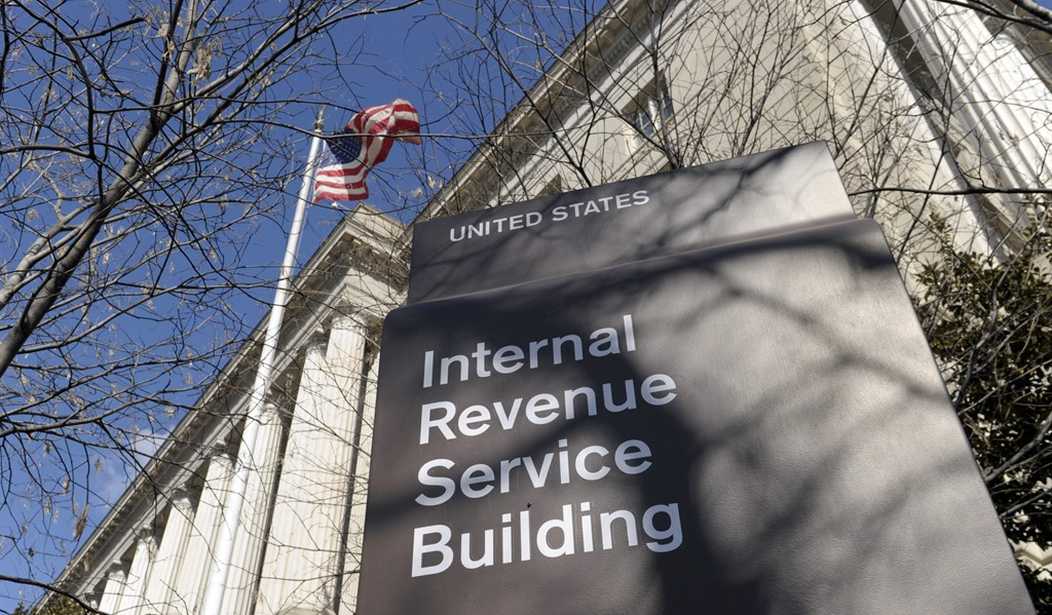The IRS seized millions of dollars from legal businesses based on a law designed to help detect criminal behavior. The Washinton Post reports on the law the IRS used to seize money in hundreds of cases without any evidence of underlying criminal behavior or even evidence of intent to hide income on taxes:
To combat criminal activity, individuals and businesses are required to report all bank deposits greater than $10,000 to federal authorities. Intentionally splitting up large sums of cash into sub-$10,000 amounts to avoid that reporting requirement is known as “structuring” and is illegal under the federal Bank Secrecy Act…
While structuring is technically a crime, it’s something of a secondary one. The reporting requirements were enacted to detect serious criminal activity, such as drug dealing and terrorism. They “were not put in place just so that the Government could enforce the reporting requirements,” as the IG’s report puts it.
But the investigation of “structuring” led to the seizure of millions of dollars. The Treasury IG’s report states, “during Fiscal Years 2012 through 2015, a total of 1,997 assets were seized with a total value of $193.1 million in 736 criminal investigations for which structuring was the primary statutory basis for the seizure.”
The Inspector General looked at a random sample of 301 cases in which property had been seized by the IRS. In 23 cases the IG could not determine the underlying source of the money involved in the transactions. In the remaining 278 cases, the IG found nearly all involved legal business:
In 26 (9 percent) of the 278 structuring cases, we were able to establish that the funds came from a Title 18 illegal source or involved any other illegal activity. the other 252 (91 percent) of the 278 cases, we did not find evidence that the structured funds came from an illegal source or involved any other illegal activity. Businesses that deal with currency transactions (retail, wholesale, service, automobile, restaurant, gas station, etc.) were primarily (210 of the 252 legal source cases) affected by the structuring seizures.
What’s more, in the majority of those cases where the underlying business was legal, IRS investigators were unable to find evidence that the “structuring” of deposits or withdrawals had been done with the intent to hide income:
Tax violations associated with the structuring of banking transactions were established by CI in only 21 of the 252 legal sources cases. In the remaining 231 legal source cases, there was no evidence that the property owner structured funds to hide income from illegal activity (other than structuring) or to underreport income on their tax return…In these 231 cases, $17.1 million was seized and forfeited to the Government.
So of all the cases the IG reviewed in its random sample where the source of the money could be determined, 83% had no underlying criminal source for the funds and no proof of any intent by the business owner to hide income. In short, the vast majority of people who had money seized for “structuring” violations hadn’t done anything wrong (other than the structuring violation itself).
The good news is that the IRS made a rule change in 2014 stating that it would no longer pursue “structuring” seizures unless there was also evidence the money involved came from an illegal source. That would rule out 91% of the cases in the random sample examined by the IG.
The IG report recommends that the IRS return the money it seized in every case where there was no evidence the funds came from an illegal source. The IRS agreed to allow people to file a petition to get their money back. However, the IG replies that IRS should simply return the money and stop requiring businesses that did nothing wrong to jump through more government hoops:
We have demonstrated to CI that in these 231 cases there was no evidence of other criminal activity other than the alleged structuring. In light of the fact that some property owners may be reluctant to again engage with the Government and may not file petitions or that CI may again treat property owners who do file petitions inconsistently, CI should simply return the forfeited funds (and recommend to the Department of Justice to do so in judicial cases) to these 231 property owners.
Finally, one reason why business owners may not be eager to get involved in any IRS petition procedure: Some targets of these IRS seizures were told they were at increased risk of prosecution if the cases were not settled. “After reviewing the settlement agreements that resolved the civil forfeiture cases, we determined that in at least 37 cases the Government bargained nonprosecution in order to resolve the civil forfeiture,” the report states. The IG adds that this might help to explain why only one property owner out of the 301 cases it reviewed took the issue to court (and won). People who believe they could go to jail are less likely to fight back even if they have done nothing wrong.








Join the conversation as a VIP Member